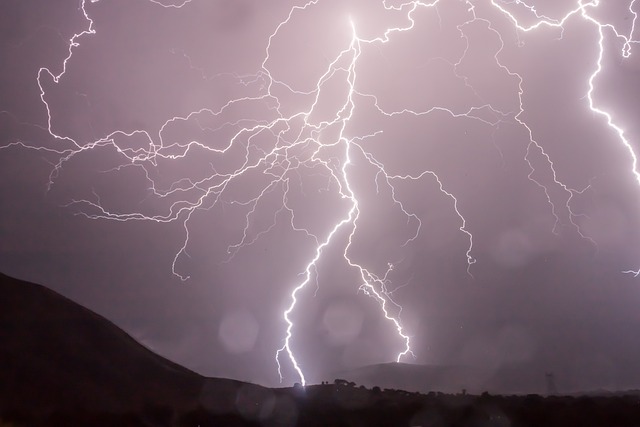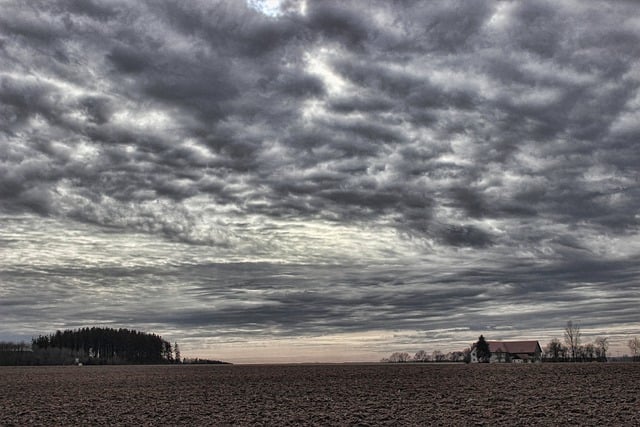Karachi, Pakistan's vibrant but vulnerable metropolis, is facing unprecedented heatwaves and extreme weather events due to climate change, disrupting daily life and posing severe health risks, especially for vulnerable communities. These unusual patterns include intense storms, prolonged droughts, and unseasonal flooding from heavy rains. Adaptation strategies are crucial to protect people and infrastructure, focusing on enhanced urban planning, green spaces, robust buildings, renewable energy, and sustainable practices to ensure Karachi's long-term viability.
Unusual weather patterns have dominated headlines, with Karachi experiencing record-breaking heat waves. This analysis delves into the historical context of these events, exploring their connection to climate change. The impact on local communities and infrastructure is examined, highlighting the vulnerability of cities like Karachi. Furthermore, we offer insights into future predictions and adaptive strategies necessary for Karachi to mitigate the effects of extreme weather events, emphasizing the urgency of addressing climate change.
- Unprecedented Heat Waves in Karachi: A Historical Perspective
- The Role of Climate Change in Extreme Weather Events
- Impact on Local Communities and Infrastructure
- Future Predictions and Adaptation Strategies for Karachi
Unprecedented Heat Waves in Karachi: A Historical Perspective

Karachi, Pakistan’s bustling metropolis, has recently experienced unprecedented heat waves that have left a significant impact on its residents and the city’s infrastructure. These extreme temperature events are becoming an annual concern, with each year setting new records. Historically, the city has seen heatwaves, but nothing comparable to the intensity and frequency of recent years. Meteorologists attribute these changes to global warming and climate change, highlighting the urgent need for adaptation strategies.
The heat waves in Karachi have not only pushed temperature records higher but have also resulted in severe health risks, particularly for vulnerable populations. The historical context reveals that such events were once rare occurrences, but they are now becoming a regular feature, disrupting daily life and posing challenges to city planners and authorities.
The Role of Climate Change in Extreme Weather Events

In recent years, the world has witnessed an increase in the frequency and intensity of extreme weather events, with Karachi, Pakistan’s bustling metropolis, no exception. Climate change, a global phenomenon, plays a significant role in this rising trend. The warming planet leads to more unpredictable atmospheric patterns, causing severe storms, prolonged droughts, and unseasonal rainfall—all of which have had notable impacts on local communities. For instance, Karachi has experienced heavy monsoonal rains leading to widespread flooding, disrupting daily life and infrastructure.
The city’s geographic location makes it particularly vulnerable to these changes. Rising sea levels and increasing temperatures contribute to a more volatile climate, exacerbating the effects of natural weather patterns. As the Earth’s climate continues to shift, understanding and preparing for such unusual weather outliers is crucial for cities like Karachi to foster resilience and mitigate potential disasters.
Impact on Local Communities and Infrastructure

Unusual weather patterns have significantly impacted local communities and infrastructure in Karachi, Pakistan’s bustling metropolis. Extreme heatwaves and unexpected storms have caused disruptions, affecting daily life and essential services. The intense heat has led to power outages, straining already limited resources and disrupting businesses and households alike. Additionally, sudden downpours and flash floods have damaged roads, bridges, and critical infrastructure, hampering transportation and increasing the risk of water-borne diseases.
These weather outliers have particularly affected vulnerable populations, including low-income communities and the elderly. Access to basic necessities like clean water and reliable electricity has become challenging, exacerbating existing social and economic disparities. The city’s already strained infrastructure has been further tested, underscoring the need for better preparedness and resilience strategies to face the impacts of climate change.
Future Predictions and Adaptation Strategies for Karachi

As we look ahead, predicting weather patterns in Karachi becomes increasingly complex with each passing year. The city’s climate is becoming more variable, with extreme events on the rise. To mitigate the impacts of these unusual weather outliers, adaptation strategies must be implemented to ensure the resilience of both people and infrastructure.
One key strategy involves enhancing urban planning and design to accommodate changing weather conditions. This could include improving drainage systems to handle heavy rainfall, incorporating green spaces to mitigate heat islands effects, and developing robust buildings that can withstand extreme temperatures and weather events. Additionally, investing in renewable energy sources and promoting sustainable practices can help Karachi adapt to a warmer climate while reducing its carbon footprint. These proactive measures will be crucial for the long-term viability of Karachi in the face of these unpredictable yet increasingly frequent weather anomalies.
In conclusion, the unusual weather outliers that Karachi has experienced this year highlight the pressing need for adaptation strategies in light of climate change. The unprecedented heat waves, extreme events, and their impacts on local communities underscore the urgency of implementing sustainable solutions to safeguard the city’s future. By understanding historical perspectives and predicting potential risks, Karachi can foster resilience and mitigate vulnerabilities, ensuring a more secure and prosperous urban landscape for its residents.
